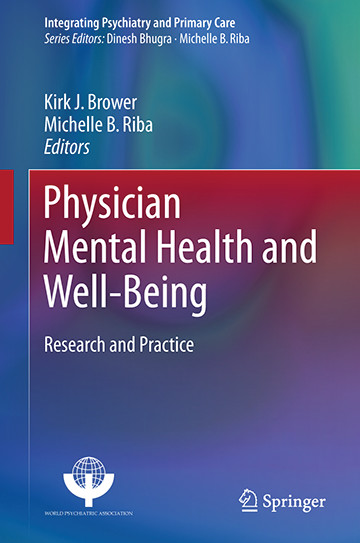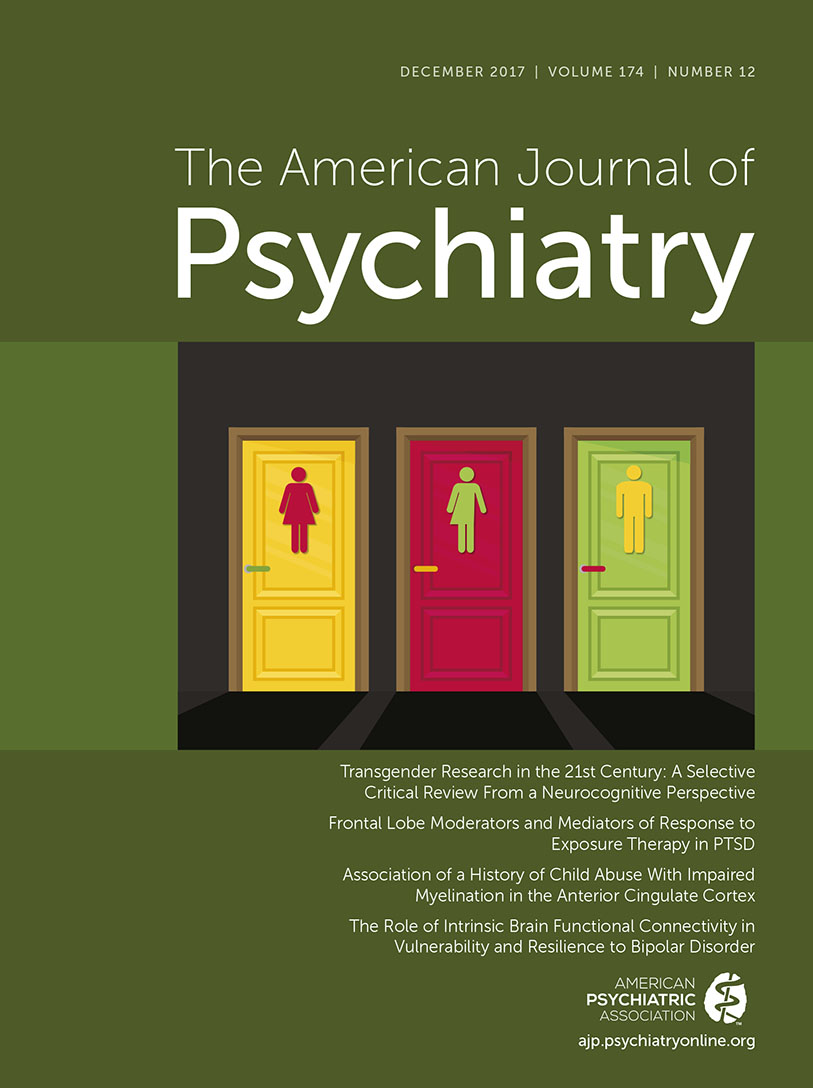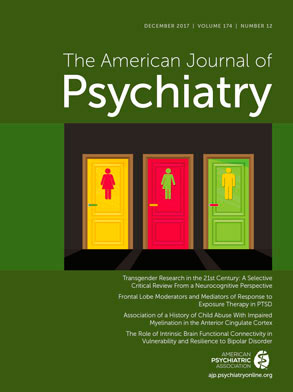The epidemic of burnout, high rate of depression, and risk for suicide among physicians is common knowledge, but we now have a new lens for understanding and responding to these problems. Two decades of increasing attention to the triple aim—improving quality, access, and cost—has had an unintended consequence. The health care system has addressed those three aims and, in so doing, has neglected the needs of doctors. And we are suffering.
Brower and Riba’s excellent edited volume, Physician Mental Health and Well-Being: Research and Practice, is state-of-the-art on what we know about this timely topic. The book also reminds us of what we do not know.
The first section, Presenting Issues, ably takes the reader through the typical stressors and the forms that physician mental health problems take—burnout, work-associated trauma, disruptive behavior, suicidality, and impairment leading to compromised practice. These important chapters enumerate the hazards many of us encounter and how endemic they are in the workplace.
The burnout and wellness chapter, by Eckleberry-Hunt, Kirkpatrick, and Hunt, is comprehensive and takes on the current controversies about burnout. What is it? Is it a form of depression, posttraumatic stress disorder (PTSD), neurocognitive impairment, or an entity unto itself? We actually do not know. The perspective of the authors is reasoned, thoughtful, and nonalarmist, but the reader is left with no doubt that we have a big problem.
The second section, Underlying Clinical Problems, is a masterly compendium of psychopathology in doctors. This section reminds the reader that we are people who happen to be doctors. The descriptions of clinical problems indicate that doctors have the same illnesses as everyone else, sometimes more frequently, and that they require special approaches for intervention. Medical culture, stigma, difficulties with help-seeking, access to drugs, and structural impediments to acknowledging illness all lead to an increased burden for physicians who are ill.
The third and last section, Interventions, is exciting and hopeful. Worley and Stonnington address the need for self-care and work-life balance and convey the optimism, flexibility, and openness that should be infused into our discussion about these problems. Worley’s sailing metaphor, in which we can see ourselves as a boat that needs the right kind of maintenance and care in order to sail joyfully with the wind, strikes a positive chord and provides a user-friendly image for physicians as they contemplate decisions about how to conduct their professional lives.
The next chapter in Interventions on physician health programs reminds us of the value of these historically important responses to physician addiction and illness but also how far they must come to address our current need.
Finally, Brower’s chapter, “Organization-Level Interventions to Promote Physician Health and Well-Being: From Taking Care of Physicians to Giving Care to Patients,” is the best summary I have read of where we need to head. If the problem of physician mental health has been exacerbated by system change focused on the triple aim, with the result that we have neglected the importance of physician human capital, Brower’s chapter provides context, data, and specific suggestions for how we can reverse this degradation, restore well-being, and promote healthy, effective functioning. He outlines a systemic approach to addressing burnout and illness, focusing on the need for each health care institution to set up its own structure for assessing, monitoring, intervening, and then evaluating the interventions. He further points out the excellent business case for engaging in a systemic well-being program.
This excellent book on a troubling problem raises many important questions. What is psychiatry’s role in dealing with physician mental health and illness? We are the experts in individual psychopathology, and surely creating staff mental health services serving each institution is an activity that is right up our alley. To be effective, these services need to be nearby, private, and flexibly available.
But, we have a broader role to play here. Other specialties (e.g., emergency medicine and family practice) have led the way in identifying and addressing burnout. We have a lot to learn from them. But, we psychiatrists are the experts in knowing what to do when the problem is more than burnout and becomes psychiatric illness. Despite the depth and knowledge of these chapters, as a field we still do not really know where burnout ends and depression or PTSD begins. Our treatment for the two is quite similar. It is up to us to research and then communicate about the differential diagnosis of burnout, depression, PTSD, addiction, and other psychiatric illnesses.
Another question raised by the book is whether talking about burnout and its prevalence helps the problem or leads to negativity and a dysfunctional response to the problem. Some worry about this, but Pandora’s box has been opened. The rigid repression of the previous generation’s doctors about the rigors of training and practice has been loosened. It is probably about time because you cannot solve a problem without talking about it. There are surely many who can take advantage of the more open discussion about burnout and psychiatric illness to increase their self-care, address their work-life balance, seek treatment, and work to promote needed changes in the health care delivery system.


